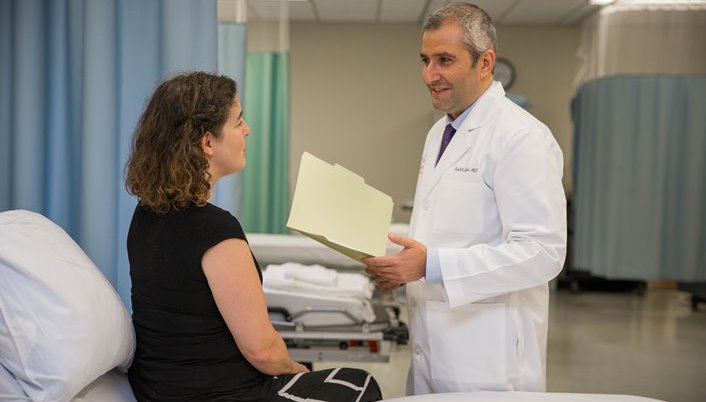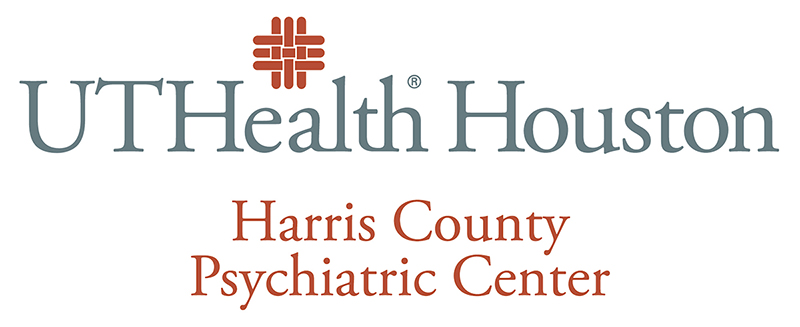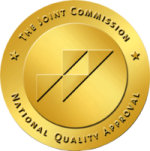UTHealth Houston Harris County Psychiatric Center
Electroconvulsive Therapy (ECT)
 HCPC's ECT Clinic brings UTHealth's world-class level of clinical care to this much-needed service in Houston and surrounding areas. For severely depressed patients who may have wait several weeks or even months to discover whether specific anti-depressant medications take effect—often to no avail—ECT (electroconvulsive therapy) is one of the fastest ways to relieve symptoms. It provides a rapid response rate for those who desire to harm themselves, stop eating or no longer want to live. ECT also has shown to help with bipolar disorder, refractory schizophrenia, the elderly with dementia related to agitation and aggression, pregnant women wanting to avoid medication or pregnant women with catatonia.
HCPC's ECT Clinic brings UTHealth's world-class level of clinical care to this much-needed service in Houston and surrounding areas. For severely depressed patients who may have wait several weeks or even months to discover whether specific anti-depressant medications take effect—often to no avail—ECT (electroconvulsive therapy) is one of the fastest ways to relieve symptoms. It provides a rapid response rate for those who desire to harm themselves, stop eating or no longer want to live. ECT also has shown to help with bipolar disorder, refractory schizophrenia, the elderly with dementia related to agitation and aggression, pregnant women wanting to avoid medication or pregnant women with catatonia.
ECT is a safe and painless procedure performed by a highly skilled physician who is an expert in the field of psychiatry and in ECT treatments. It works well as an outpatient procedure, with the patient under general anesthesia and asleep during the procedure, which takes 10 -20 minutes. A finely controlled electric current is administered for less than one minute, creating a brief seizure in the brain. Theories suggest that this process may improve the way brain cells communicate with each other, help new brain cells to form, or help increase the amount of the brain’s “good chemicals” that naturally reduce depression.
In our ECT program, every candidate considered to receive ECT is referred for an initial consult with Salih Selek, MD, Director of the UTHealth Refractory Mood Disorders Program and an Associate Professor on the UTHealth faculty. If ECT is confirmed as an appropriate course of treatment, the patient is scheduled for lab work and medical clearance by an internal medicine or family practice physician.
The procedure itself is administered at HCPC’s newly constructed ECT suite at UTHealth Harris County Psychiatric Center (HCPC), which is staffed by a team of highly-skilled professionals. The entire process takes about one hour. Side effects are typically those that accompany undergoing anesthesia: a slight headache, stomach upset and muscle aches—all short-term side effects of the procedure. A patient may experience brief memory loss of events occurring immediately before and after treatment, which may last from a few hours to a few weeks but is not permanent.
Treatments typically are given two to three times a week, with the course of acute treatment ranging from six to twelve weeks. A study published in the Journal of the American Medical Association in 2007 indicates that relapse is less frequent when patients receive follow-up maintenance treatments, which may occur once weekly or monthly, depending on the individual’s needs.
ECT is recognized as one of the most effective, safe and pain-free treatments for certain conditions, particularly severe depression that does not respond to medication or other therapies. In fact, a 2006 study published in the Archives of General Psychiatry reported an 86 percent remission rate for severely-depressed patients treated with ECT. Today, an estimated 100,000 people across the U.S. choose to be treated with ECT each year.
Watch the KPRC Houston story "New therapy helping patients deal with depression" — with Dr. Salih Selek, Director of the Refractory Mood Disorders Program, UTHealth Harris County Psychiatric Center.
For information or to schedule an appointment, 713-741-3930 or email us.
Located within the Texas Medical Center, our address is 2800 South MacGregor Way, Houston, TX 77021.


